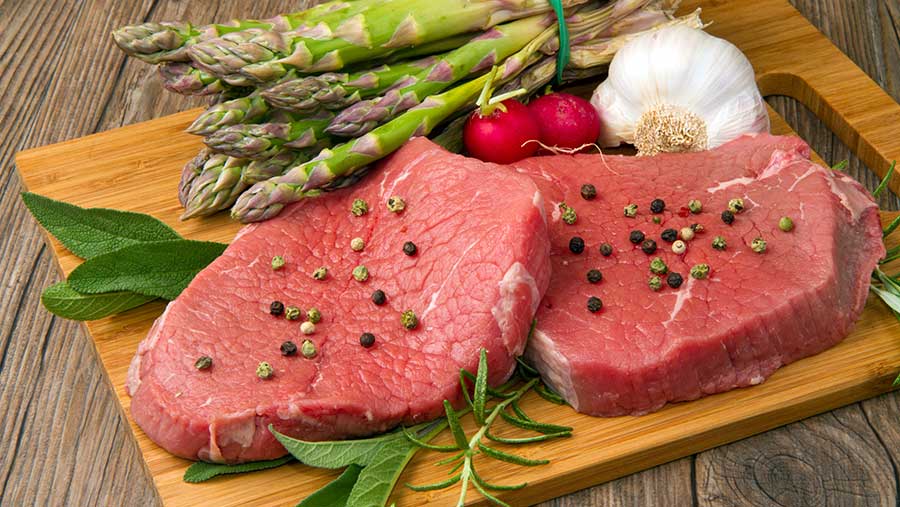Scare stories turning people off red meat, says QMS
 © Ingram Image
© Ingram Image Media stories about the role red meat production plays in global warming and its links to bowel cancer are having a negative impact on consumption.
According to new independent research carried out by Censuswide on behalf of Quality Meat Scotland (QMS), almost half of all consumers (49%) are trying to eat less red meat.
See also: EAT-Lancet diet is nutritionally deficient, says obesity expert
The top reasons given are animal welfare (26%) followed by concerns about the environmental impact of farming (19%).
Earlier this year the EAT-Lancet report, published in The Lancet magazine and reported widely in the national media, called for a significant reduction in meat consumption, blaming livestock production for producing greenhouse gases.
More recently, a study from Oxford University sponsored by Cancer Research UK has pointed to increased risks of bowel cancer from eating red meat and processed meat products such as bacon.
According to the study, eating three rashers of bacon a day instead of one could increase the risk of bowel cancer by 20%, although that still amounts to less than 50 people per 10,000 head of population.
Misleading
But QMS says consumers are being misled and insists that many of these claims are unsubstantiated when it comes to Scotland’s farming practices.
“In Scotland, producers are very proud of our animal welfare and our sustainability credentials are exceptionally strong,” QMS chief executive Alan Clarke said.
“Livestock farmers play a major role in looking after the landscape and grazing animals are needed for the habitats of many species,” he said. “The reality is, 80% of Scotland’s farmland is comprised of grass and farmland not suitable for growing crops, but ideal for producing beef.”
NFU Scotland has also taken issue with the claims from Oxford University in relation to red/processed meat and bowel cancer.
NFUS livestock committee chairman Jimmy Ireland said: “When people take the time to look beyond the sensationalist headlines, the facts remain that including meat, dairy, eggs, fruit, cereals and vegetables in a healthy and balanced diet is the best way to ensure you are getting all the necessary energy, protein, fibre, vitamins and key minerals, including iron and calcium.
“In the best interests of consumers, encouraging the adoption of balanced diets, more regular exercise and tackling problems around alcohol and smoking must be the focus for policymakers.”
Public support for Scottish farming
Despite the trend for consumers to eat less meat, QMS is reassured that 92% of those who took part in the Censuswide survey (covering 2,000 adults in Scotland) said they still ate red meat.
According to nutritionist Laura Wyness, this is just as well. “Beef is a great source of protein and is rich in vitamins and minerals such as vitamins B3, B6, B12 and zinc,” she said.
“It also is a source of easily absorbed iron. Those who follow a diet which doesn’t include red meat such as beef, may be at greater risk of lacking key nutrients. Young girls and women are particularly at risk of iron deficiency.”
There was also evidence that two thirds of respondents to the survey were concerned about the impact of veganism on Scotland’s farmers.
“From the research results, we can see that people really care about safeguarding the industry, and we want to give them the facts as to why it’s right for them to do so,” Mr Clarke said.
“Scotch Beef meets stringent quality, sustainability and welfare standards, so consumers can be secure in the knowledge that consuming red meat from Scottish farms will not have a negative impact on the environment or animal welfare.”
